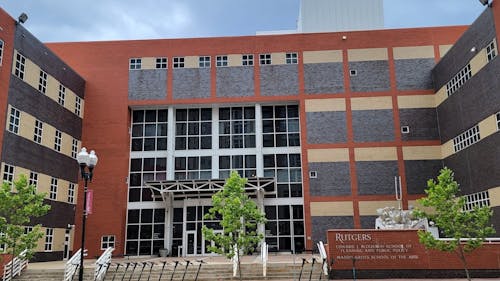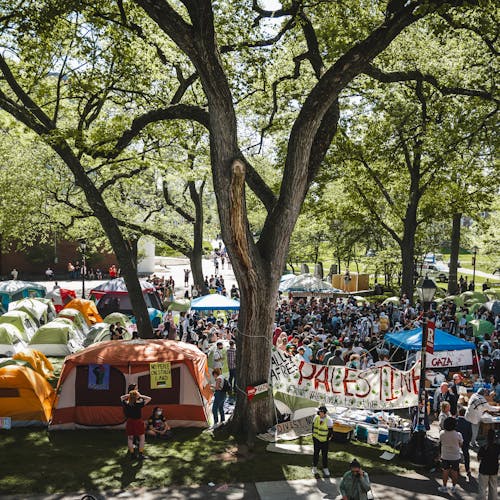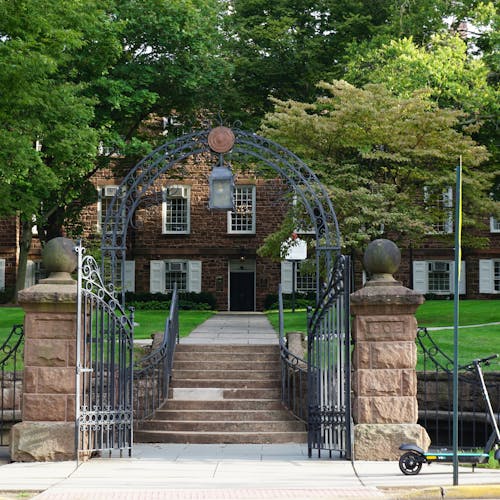U. researchers awarded $1 million in federal funds to fight climate change impacts

Last month, a group of researchers at Rutgers were granted a $1 million Civic Innovation Challenge award to improve partnerships between local communities and the University in an effort to fight climate change, according to a press release.
The funding from the National Science Foundation (NSF) and the federal government will be delivered in two stages, according to the release. The first round of grants provides $50,000 to help research teams plan projects over six months, and then, the second stage funding of $1 million is to implement projects from the planning stage that are ready to be enacted, according to the release.
Clinton Andrews, a professor in the Department of Urban Planning at the Edward J. Bloustein School of Planning and Public Policy and lead principal investigator for the project, said that the award was a grant from the NSF, made to bring communities and researchers at the University together for a common goal.
"What we proposed to do was to have kids who live in public housing in the city of Elizabeth, New Jersey, … work with us at the University to try to measure microclimate conditions in the city of Elizabeth," he said. "Specifically, understanding which locations in the city are extra hot during the summer."
The proposal was titled Smart Kids and Cool Seniors, and one of the project's primary goals was to assist older adults living in public housing, which often does not have air conditioning, according to Andrews. Those living in such conditions are the most at risk for heat-related complications such as heat stress, he said.
Andrews said the funds will go toward installing a network of sensors to measure the temperature, humidity and air pollutants so the heat and pollution levels on a day-to-day basis can be seen and understood.
"That will provide information that residents can act upon," he said. "If they know it's going to be extra hot, they can try to schedule their trips to the store or to visit friends to be in the cooler hours, or if they know that certain areas are considered pollution hotspots, they can try to avoid them during the hours when the pollution is worst."
When asked about climate change's effect on senior citizens, Andrews said that it increases the frequency of extreme weather events, causing longer heat waves.
He also said it is important to analyze the heat conditions in different parts of Elizabeth to get a full picture of the potential issues and solutions that may exist.
"The most intense heat stress could be quite different from one block to the next in a city like Elizabeth," Andrews said. "You're going to feel it more if you're standing on a dark-colored road or if you're trapped in an apartment."
He said that another portion of the funding would be used to create sensor-equipped backpacks that some children participating in the project would wear to measure temperature, humidity and air pollution.
These will function as tools to measure the individuals' total exposure to heat stress and air pollution as they walk around town, according to Andrews. The initiative also took the fact that children sometimes walk with elderly relatives into consideration, thus allowing researchers insights into both groups.
"We can infer from the measurements that the kids make, what the elders are exposed to. And all of this is in the service of trying to reduce emergency room visits and the health problems that seniors experience, especially during the hot summer months," Andrews said.
Jennifer Senick, senior executive director of the Rutgers Center for Green Building at the Bloustein School and co-planning investigator on the research project, said that the University has a partnership with the Housing Authority of the City of Elizabeth and with other local groups in the city to keep offering opportunities similar to the Smart Kids and Cool Seniors initiative.
This program builds on part of the larger work Rutgers researchers have done in Elizabeth to improve the lives of children and older individuals in the city, especially those in public housing, she said.
Andrews also said that the project is looking to bring on undergraduate students who have the right skills and create a class that centers around the project for the upcoming Spring 2024 semester.
He said that the project's long-term end goals include trying to further understand how to connect different environmental sensors to provide helpful information. The researchers are also trying to prevent emergency room visits by senior citizens with underlying health issues due to public housing and poverty.
"We're also hoping that this becomes a model that can be shared with the public and public housing authorities around the country," Andrews said. "If it works in Elizabeth, it might make sense in other places."



